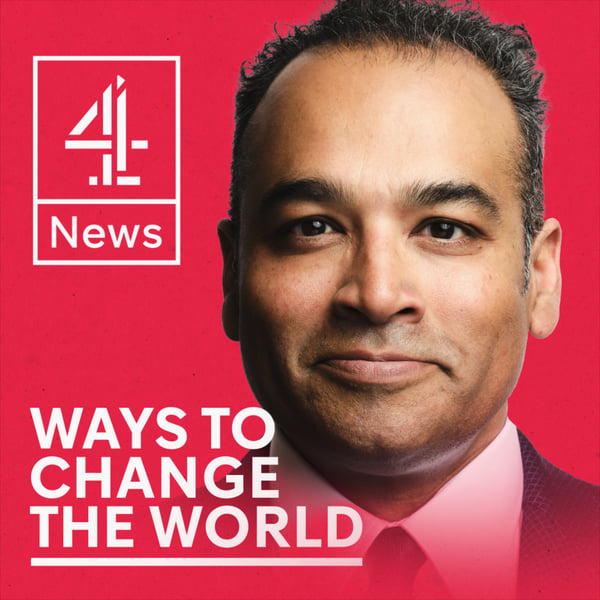Poet Ben Okri on disruptive climate protests and dreaming of Nigeria
Ways to Change the World with Krishnan Guru-Murthy
Channel 4 News
4.6 • 1.1K Ratings
🗓️ 21 July 2023
⏱️ 34 minutes
🧾️ Download transcript
Summary
‘This earth that we love is in grave danger because of us,’ reads the first line of Sir Ben Okri’s poem, ‘The Broken’.
The poet and Booker-prize winner, who has long been a vocal environmental activist, has seen the effects of the climate catastrophe firsthand, as a young boy growing up in Nigeria, but is optimistic that it’s not too late to reverse the damage that’s been done to our planet.
Today on Ways to Change the World, Ben Okri tells Krishnan Guru-Murthy about the urgent need for action on climate change, the importance of disruptive protests like Just Stop Oil, and why artists like him should use their voice to encourage people to rise up to the challenge.
Produced by Alice Wagstaffe and Silvia Maresca
Transcript
Click on a timestamp to play from that location
| 0:00.0 | Hello and welcome to Ways to Change the World. I'm Krishnan-Giru Murphy and this is the podcast |
| 0:06.7 | in which we talk to extraordinary people about the big ideas and their lives and the events that |
| 0:10.8 | have helped shape them. My guest this week is Ben Okrie, newly knighted Serben Okrie, in fact, |
| 0:19.2 | who has just brought out a new piece of work called Tiger Work, stories, essays and poems about |
| 0:27.7 | climate change. And it is the great driver that you often talk about with your work and your |
| 0:35.1 | position as one of the foremost writers in this country as your great passion. |
| 0:43.8 | Yes, I must confess that it's been a quiet passion for most of my writing life. |
| 0:51.2 | It's only recently that it's become more dominant, which is to say it was always there. It was |
| 0:58.7 | there in the farming studio, it was there in my early books because I was always aware of what |
| 1:04.6 | you know, we human beings have been doing to nature, forest and nature, rivers, |
| 1:10.4 | the air, the toxic atmosphere, bad air, too many cars, companies belching out fumes, killing people. |
| 1:20.2 | Is that an obvious part of a Nigerian childhood? I think it's an average part of a childhood in |
| 1:25.7 | any of the modern nations of the world. It's now unavoidable, you can't. It's very hard to find places |
| 1:33.7 | where you are not being poisoned by toxic fumes of one kind or another. It's very, very hard. |
| 1:40.1 | And you consciously want to use your position as a writer as somebody with a knighthood |
| 1:48.1 | to advance arguments and thinking around this. Yes, I think it's something I'd like to |
| 1:56.1 | for now dedicate that position to drawing attention to and also to strengthen and to spread |
| 2:04.6 | an awareness through my art and through the voice that I have. Now, it is very much art. This is not |
| 2:14.6 | obvious. It's not agit prop. Yeah, it's not agit prop. No, it's art. It has to be. It has to be |
| 2:21.5 | art first before it can become anything else. I take that as given in a way. I'm surprised |
| 2:28.4 | all the people don't. So is this a sort of an anthology of work that you have done over the years |
| 2:35.7 | or do you approach it as a specific piece of work? When I built it around the idea |
... |
Transcript will be available on the free plan in -620 days. Upgrade to see the full transcript now.
Disclaimer: The podcast and artwork embedded on this page are from Channel 4 News, and are the property of its owner and not affiliated with or endorsed by Tapesearch.
Generated transcripts are the property of Channel 4 News and are distributed freely under the Fair Use doctrine. Transcripts generated by Tapesearch are not guaranteed to be accurate.
Copyright © Tapesearch 2025.

